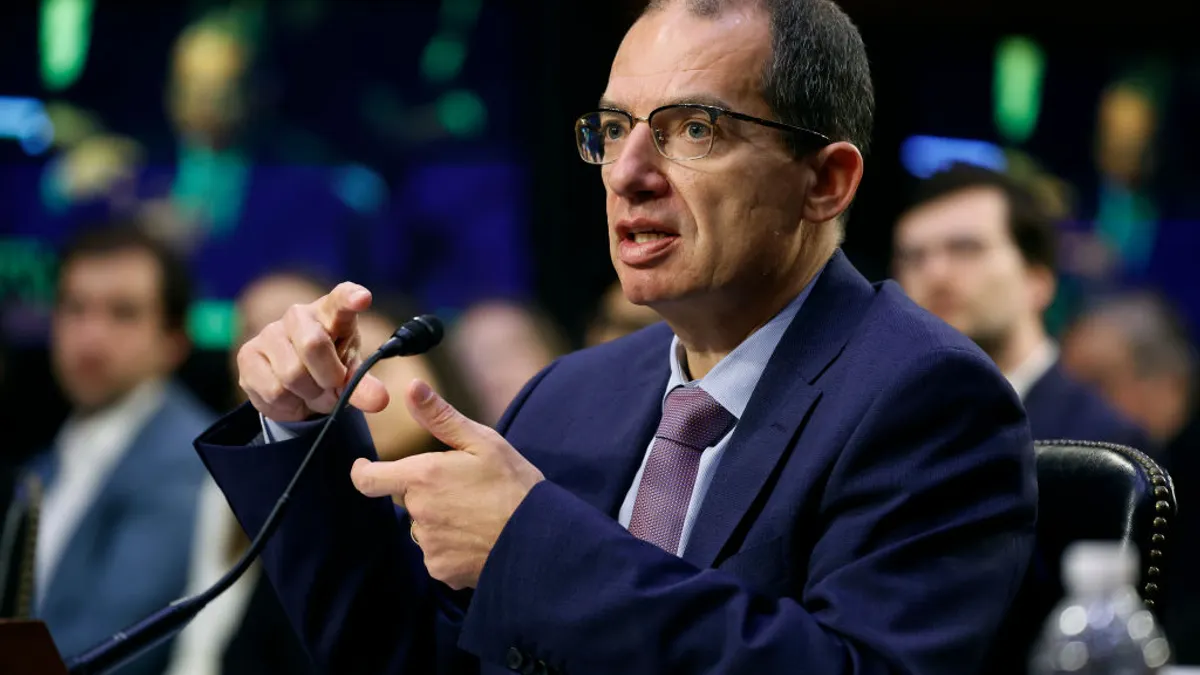Proposed legislation, a new policy announcement by Pfizer, and criticism of reports published in medical journals fed the frenzy of media coverage surrounding key opinion leaders during the summer of 2008. While the debate on the ethics and value of key opinion leaders (KOLs) rages on inside and outside the industry, our experts tell us that the role of KOLs will not soon disappear and that the call for added transparency is a positive change. The drive for more transparency is expected to further clarify the KOL role. And as physician relationships are disclosed, thought leaders will be held more accountable for their actions, resulting in a higher quality of work and level of knowledge. “The use of key opinion leaders has become a more thoughtful and more deliberate process," says Michael Curry, president of Curry Rockefeller Group. “Increasingly, physician interactions require disclosure and these engagements must be justified to senior management, which elicits a much more rigorous discussion of who exactly is needed and what his or her role should be. In the end, there may be fewer interactions, but the ones that do take place will be ones of greater depth." Thought leaders of today will learn how to cope with the regulatory and legal review of their relationships with pharmaceutical companies and will continue to maintain their status as being irreplaceable in producing better clinical research, generating better trial data, and providing better patient care. “This role is never going to go away," Mr. Curry says. But any appearance of a conflict of interest may keep KOLs from performing several roles at once, something that has been a common practice in the past. “It’s certain that physicians will no longer engage in both sets of conversations — education and consulting — at the same time," Mr. Curry adds. Rob Nauman, principal of the BioPharma Advisors Network, predicts that KOLs will be forced to choose an academic life or a life within industry. Results of a survey conducted by BioPharma Advisors reveal that thought leaders who are participating in clinical trials are no longer signing on to do promotional-based speaking. Mr. Nauman reports that 75% of the more than 200 physician respondents to the questionnaire state they do not engage in promotional speaking if they are involved in clinical trial work. This change is expected to drastically reduce the flow of money traditionally spent on promotional speakers, but the upshot is that advisory boards that once were used “to develop evangelists," as Mr. Nauman puts it, are now adhering to new guidelines and functioning solely in consultative roles for many companies. Because of remuneration caps and compliance standards, thought leaders may also start to limit the number of companies they work with. A thought leader may choose to work with just one company or work in a more limited and specific capacity for several companies. According to Leo Francis, Ph.D., president of Publicis Medical Education Group, a KOL of the past may have performed several different services or types of interactions for a particular pharma company, but that is transforming into typically only one or two key services today. The requirement for other services is being offered or supported by an ever-diversifying KOL base. “The KOL base is broadening because not all services are going to be provided by one KOL or will even be appropriate for one KOL to provide," Dr. Francis says. “Fundamentally, this changes the environment. Instead of only a handful of people who are often acknowledged to make a difference in a particular disease, more and more people are becoming part of the learning and education process." The downside is that this can limit how much any one specific KOL can or will work with a company. And the company needs to be judicious in how and with whom it works and plan on establishing a commitment with a KOL that goes beyond even one to two years. In the industry overall, there is a shift in understanding and using influence relationship management. “Although individual physicians can certainly influence the market, there is also a broader influential base, including key institutions and key treatment protocols," says Archie Anderson, VP of ROI2. “There is a very complex influence matrix that moves every market. The most important part of it is clinical treatment: that is, what moves clinicians to treat an illness in a specific way. How can a pharmaceutical company effectively communicate the clinical value of a product to the clinical universe so that patients benefit?" Whether being paid by a pharmaceutical company or not, physicians talk to each other and share information that is scientific and results-oriented, and these conversations happen all the time. Mr. Anderson refers to these types of interactions as commercial- or market-driver influencers. “There are physicians who are scientific giants in their fields, there are medical associations that yield giant influence, and there are giant medical journals that are highly visible as commercial drivers," Mr. Anderson says. “In the same way, there are KOLs who are market drivers who are very clinical, who treat patients, and then there are KOLs who influence how patients are treated and are critical to making sure the market operates effectively. It is important to know the difference between them, because the physician who has important committee positions at major medical associations and is on the advisory board of two or three important journals and who reviews medical articles and has his name on several published articles is not the same physician who is in Cincinnati talking to patients who have problems with hypertension." A Shifting Focus Another factor affecting the KOL role is the changing face of medicine and its complex economics. The very nature of opinion leaders is shifting from those with a scientific background toward more business and policymakers. “Originally, KOLs were individuals whose opinions mattered and who espoused appropriate treatment guidelines, standards of care, and so on," says Scott Mader, president and CEO, Clindevor360. “Over time, KOLs have become less academic and are leveraging their opinions around business-associated best practices — not just about how to treat patients effectively, but how to treat patients cost-effectively." Mr. Nauman believes that the type of person who will serve as a KOL in the future will change. “At the core, an opinion leader is a person who influences change at a more dramatic pace than the average Joe on the street," he says. “With the advancement of managed care, nontraditional professionals such as pharmacists and nurse practitioners, along with federal and state health policy advocates, will become KOLs. It’s important that these top-notch leaders who help form opinions on medical practice work together to improve patient care by improving health outcomes." Mr. Mader points to the hospitalist as an example of a role that is growing dramatically. “This function has the fastest growth trajectory of any specialist in medicine," he says. “The responsibility of the hospitalist is to manage better patient care and do so in a much more cost-effective way. These individuals within institutions have growing spheres and have more credibility than ever because they function as a clinical administrative arm that manages cost-effective care." Pharma companies may need to bring more transparency to how they choose KOLs as well. “There is no clear methodology for how an opinion leader is selected today or any specific documentation for that purpose," Mr. Nauman says. “It’s all back-of-the-envelope handshake stuff, and there needs to be a process and transparency around this as well. But I believe the new PhRMA code will change that practice." Because there can be as many as 40 to 50 people from the same company interacting with a top-notch KOL at any point in time, Mr. Nauman believes there needs to be a process that coordinates all efforts so there is a collective understanding of what activities the KOL is participating in. “The industry has never managed thought leaders very well; marketing barely talks to clinical, and neither function knows about the three or four other different sources of income that a KOL may have received from another company," Mr. Nauman says. “One of the challenges today is determining who is responsible for managing top-notch relationships. From what we see in our research, no one is." Despite the sea change in regulations, policies, and other elements affecting the KOL environment, the role of the thought leader has not lost any, nor is it likely to lose any, of its importance in pharmaceutical marketing. “The KOL is as important as ever in playing a role in the overall care that patients receive, but the emphasis is now on transparency," Mr. Curry says. F PharmaVOICE welcomes comments about this article. E-mail us at [email protected]. Scott Mader, Clindevor360 Over time, KOLs have become less academic and are leveraging their opinions around business-associated best practices. Dr. Leo Francis, Publicis Medical Education Group The KOL base is broadening because not all services are going to be provided by one KOL or will even be appropriate for one KOL to provide. KOL Transparency in the News June 21, 2008 Ray Moynihan of the University of Newcastle, Newcastle, New South Wales, Australia, published a report in the British Medical Journal regarding the role of the experts paid by the pharma industry to help educate the profession and the public. The report is entitled, “Key Opinion Leaders: Independent Experts or Drug Representatives in Disguise?" July 2, 2008 The Health Care Renewal blog, The Bioethics Forum, and BusinessWeek all reported on the growing conflict of interest surrounding an article published in April in the Annals of Internal Medicine. The article supported the case for treating tobacco dependence as a chronic disease with lifelong pharmacology, even though long-term use is considered off-label. According to media reports, the enthusiasm of the two authors may have stemmed from the fact that they were both on the speaker’s bureau of Pfizer and were consultants to Pfizer, Novartis, GlaxoSmithKline, and Celtic Pharma, all of which promote various smoking-cessation treatments. July 2, 2008 Dow Jones reported that Pfizer implemented a new CME funding policy that supports CME courses at academic institutions, teaching hospitals, and medical societies, but not CME courses offered by for-profit medical-education and communication companies. The policy is an attempt to mitigate the appearance of any conflicts of interest relating to industry-supported CME courses that often are criticized as ways to promote drugs. July 31, 2008 Ed Silverman, formerly of Pharmalot, reported that the Senate and House introduced a bill that would create funding for a program to send trained pharmacists, nurses, and other healthcare professionals into a doctor’s office with independent data about benefits, risks, costs, and comparative effectiveness of prescription drugs, including generics. Called The Independent Drug Education and Outreach Act of 2008, the legislation would make it possible to fund grants or contracts through the HHS Agency for Health Care Research and Quality to develop educational materials and to send trained medical professionals to a physician’s office to discuss “unbiased information on appropriate prescribing," according to a summary of the bill. Is Pfizer’s new CME funding policy affecting KOLs? PharmaVOICE asked our experts if Pfizer’s decision to no longer directly fund CME programs with for-profit third parties would affect the KOL landscape. Archibald Anderson ROI2 Pfizer’s decision won’t change the fact that KOLs exist because a key opinion leader is not just a hired position at a pharma company; this is somebody who is a qualified trusted leader in their market. And even if a company never hires KOLs it still needs to know who these individuals are. There are big changes going on, and it’s very important that everyone in the industry be knowledgeable about what’s happening and respond in the most knowledgeable and productive way. Dr. Leo Francis Publicis Medical Education Group Pfizer’s policy will mean that KOLs will still work with other organizations to satisfy their needs for continuing education. Even though Pfizer stopped providing CME through third parties, we need to recognize that the education need is not going away. Doctors still need rigorous objective information to help them provide good patient care, and they will continue to seek information that is going to have a meaningful impact on that patient care. KOLs will work with a broader or different range of organizations that support CME and so reinforce the value of CME in this marketplace. Scott Mader Clindevor360 The problem will arise when the academics try to develop learning objectives for CME that reference therapeutic decision making in the clinical category that pharmaceutical companies operate in. This situation presents a catch-22 scenario — many companies are concerned about a perceived conflict by funding CME that has a direct association with their products. Ironically, the only CME that is totally safe from perceived conflict are those programs that have no alignment with the therapeutic categories they promote within. This puts them in a no-win situation. Physicians may view the Pfizer announcement as a very positive thing. Rob Nauman BioPharma Advisory Network KOLs will still receive CME, but they won’t receive it directly from pharma any longer. For pharma companies this means if they want to do CME, it’s going to cost them double, because the universities will double the cost. I don’t think this solves the problem of undue influences in terms of conflict of interest — it just hides it more. Rob Nauman, BioPharma Advisor At the core, an opinion leader is a person who influences change at a more dramatic pace than the average Joe on the street. Michael Curry, Curry Rockefeller The use of key opinion leaders has become a more thoughtful and more deliberate process. Archibald Anderson, ROI2 Although individual physicians can certainly influence the market, there is also a broader influential base, including key institutions and key treatment protocols. Experts on this topic Archibald Anderson. VP, Strategy, Partner, ROI2, a subsidiary of ProLink Services, which offers a next-generation business intelligence platform, Influence Intelligence, to pharmaceutical and biopharmaceutical companies. For more information, visit roi2.com. Michael Curry. President, Curry Rockefeller Group, an independent, full-service, medical education agency delivering thought leader-focused medical education and publication planning and applied digital science initiatives. For more information, visit curryrockefellergroup.com. Leo Francis, Ph.D. President, Publicis Medical Education Group (PMEG), which is part of Publicis Healthcare Communications Group, one of the largest healthcare communications groups in the world. For more information, visit publicishealthcare.com. Scott Mader. President and CEO, Clindevor360, a consulting organization that provides services for strategic business planning and clinical market development. For more information, visit clindevor.com. Rob Nauman. Principal, BioPharma Advisor Network, a community of experienced pharmaceutical professionals working together to solve key business issues and create organizational changes that maximize revenue and minimize cost. For more information, visit biopharmaadvisors.net.
An article from


Push for Transparency Creates New Environment for KOLs
Filed Under:
Policy & Regulation






